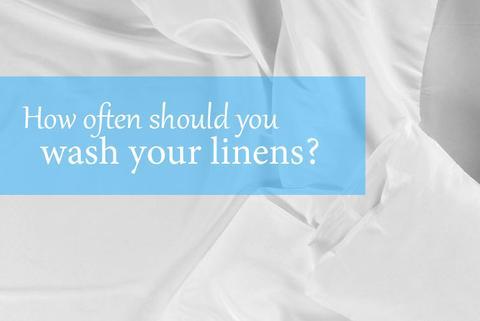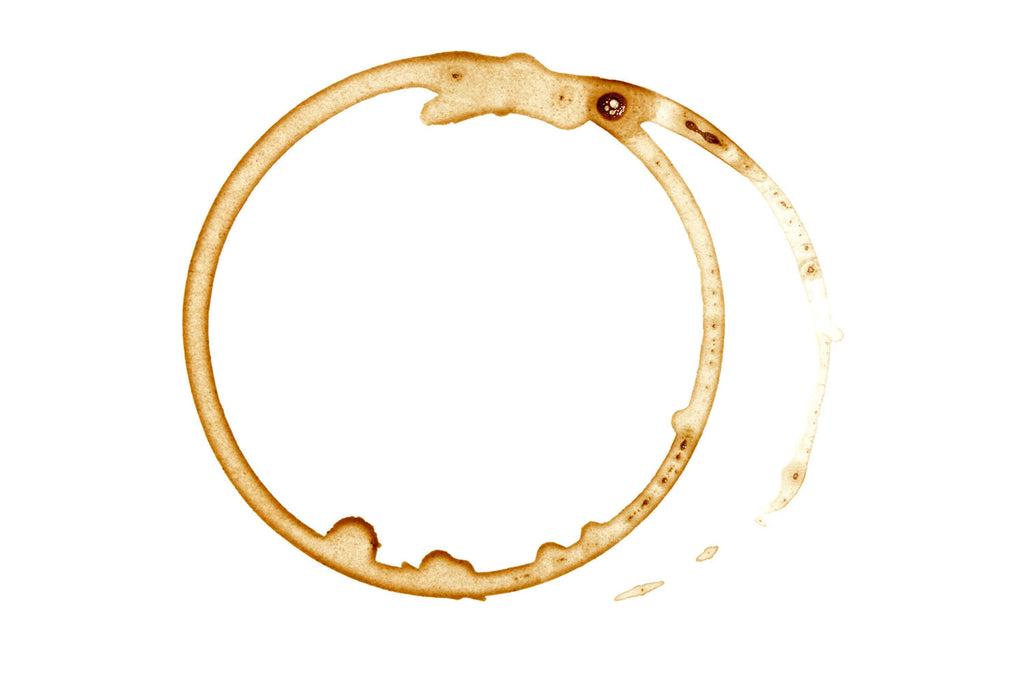
How Often Should You Wash Your Sheets?

Sheets are one of the most essential pieces of our bedding. They’re the piece that our bodies come into contact with the most while we sleep night after night. Because of this, keeping them clean is incredibly important.
Unfortunately, many of us probably aren’t washing our sheets nearly enough. This begs the question: how often should we wash our sheets?
Well, this article is going to answer that question and more. We’re going to take you through everything you need to know about sheet washing and sheet care so you can sleep clean and sleep happily every single night.
Why Are Clean Sheets Important?
Fitted and top sheets do a whole lot more for your sleeping situation than just giving you a soft surface to sleep on. They serve a distinct purpose that affects your nightly sleep.
Temperature
Believe it or not, bed sheets help to regulate your body’s temperature as you sleep. Your body should stay cool while you sleep so your body and brain can recuperate properly, and your sheets help to keep your body cool.
Sheets are typically breathable, and their structure helps to create somewhat of a microclimate between your bedding and your body. They draw heat away from your core so you can stay cool, yet cozy, throughout the night.
Allergens
Your sheets are often exposed to the air in your bedroom so that they can be a landing ground for all sorts of indoor allergens like pet dander and even dust mites. Dust mites are microscopic critters that live in the dust and love to congregate in your top and fitted sheets.
If you don’t keep your sheets clean, these allergens can build up, which can be bad even if you don’t have allergies to these things. Plus, in addition to allergens, dirty sheets can be home to bed bugs and even fecal matter. Gross.
Sweat and Skin
Perhaps the most significant factor to consider is the stuff that naturally comes off of your body while you sleep. Over the several hours-long period that you’re asleep, your body will shed a lot of different things.
Your body is going to sweat, your skin is going to make oils, and your dead skin cells will fall off of your body. All of these bodily fluids end up in your sheets. This can hinder the sheets’ breathability and make them uncomfortable, inhibiting their function. In addition, all of those oils and dead skin cells can cause breakouts, according to dermatologists.
More than that, this is just a little bit gross and unsanitary. If you don’t wash your sheets, you’ll sleep in filth every night, which can cause skin irritation. So make sure that you wash your sheets often.
How To Wash Bed Sheets
So, how often should you wash your sheets for optimal wellness and maximize the lifespan of your sheets? At the most, you can wait two weeks before washing them, but it’s recommended that most sleepers do it closer to once a week, especially if they have a condition that makes them sweat, shed skin, or produce more oil than normal.
If you don’t want to wash your sheets every week, buy another set of sheets to have on hand so that you don’t have to do laundry as often. This will help make the chore a bit easier for you.
How Often Should You Wash Other Bedding?
Your other bedding doesn’t need to follow the same washing practices as your sheets. Some need less; some need more.
For starters, your pillowcases need to be washed about as often as your sheets, if not more often. They get as much or more wear and dirt on them as you use them. Just make sure not to put a clean pillowcase on dirty sheets so that the dirt doesn’t transfer.
Pillows themselves should also be washed because they still get sweat and dirt on them, even with a pillowcase. You should wash your pillows about every three months.
If you use a duvet cover on your comforter, you should probably wash the duvet every month. The same timeline goes for an extra blanket that you have over your top sheet. In this scenario, you should wash your comforter about two to four times a year.
If you don’t have a duvet on your comforter, you’re going to need to wash it a bit more often. Go for somewhere in the realm of once every four to six weeks.
How Often Should You Clean Your Mattress and Mattress Pad?
The surface underneath your sheets, whether it’s a mattress or a mattress pad, needs to get cleaned too. It’s best to clean both of these things two or three times a year. However, if you spill something on it, it’s best to clean it right away.
Can You Wash Your Sheets Too Much?
The short answer is yes, but you would have to wash them an absurd amount to wash your sheets too much.
Many people are under the misconception that washing your sheets too much will wear out your sheets fast. This is only the case with cheap fabrics. If you get quality cotton sheets with a high thread count, the opposite actually happens.
Washing your sheets is a necessary part of keeping them nice and healthy. In fact, washing your sheets can help to loosen up the fibers of new sheets and make them even softer and comfier than they were before.
This is especially true for linen sheets. Linen fibers only get better with age and last a very long time.
So wash your sheets once a week. Frequent washing won’t wear them out faster than intended. It will help to protect your sheets in the long run so they can last you for years to come.
How To Wash Sheets
Now that we’ve established the importance of washing your sheets, let’s go through how to go about washing your sheets and other bedding.
Sheet Washing
Most sheets these days can be machine-washed. In general, your sheets should be washed in hot water to really cut through all the body oils and grime in them.
It’s extra important with bed sheets that you don’t use a detergent that’s going to irritate your skin, especially if you have sensitive skin. So it’s best to get detergents that are paraben-free and dye-free. Feel free to throw your pillowcases in with this load.
Once the wash cycle is finished, most of the time, you can throw them in the dryer and set them to tumble dry low to get them nice and dry.
These are general sheet care principles, but before you clean your sheets, read the manufacturer's label for specific care instructions on how to clean your sheets. Some sheets need specific care to stay healthy and protected.
Pillow Washing

Some pillows are safe to wash in your washing machine at home and even placed in the dryer. But again, you need to read the label to determine the best cleaning practices. For example, foam pillows cannot be machine-washed because they’ll fall apart.
If you have a pillow that can go in the dryer, add some tennis balls to it to keep the pillow from clumping as it’s spinning. They also help the pillows to dry evenly.
Foam pillow washing is a bit different. You’ll need to wash these by hand. Fill a large sink or tub with warm water and a bit of gentle detergent. Submerge your pillow and gently knead it for about ten minutes to get it perfectly clean.
Fill your sink or tub with clean water and submerge and knead again to rinse. You’ll need to repeat the rinsing process a few times to get all the suds out.
Dry your foam pillow on a ventilated flat surface, and use a fan to speed up the process. It can take up to a full day for your pillow to dry completely, so take your time. No matter what, do not put your foam pillow in the dryer.
Comforter Washing
Again most comforters can be machine washed and dried right at home. However, large comforters or small washers might require you to head to the laundromat to get your comforter clean.
And, as with all bedding, read the manufacturer’s label to find out the best way to clean your products without damaging them.
Mattress and Mattress Pad Cleaning
To wash your mattress, start by vacuuming off excess dirt and then spot clean with a stain remover and rag. Then, simply sprinkle some baking soda all over the surface of the mattress and let it sit for a good while. It’s best if you let the sunshine on the mattress during this time to kill any extra bacteria.
Once you’ve let the baking soda sit for a while, vacuum it all up with your vacuum, and you’ve got a clean mattress with no odors.
Clean Sheets and Bedding
Clean bedding is vital for good sleep. It helps keep your temperature regulated and allows you to sleep in a sanitary place that won’t aggravate your allergies. Start taking care of your sheets with weekly washings and improve your sleep time today.
For more information about bedding and an amazing selection of high-quality sheets, mattress pads, and mattresses, head to eLuxury.
Sources:
Comforter and Bedding Cleaning | Purdue University
How often should you wash your sheets? | Ohio State Medical Center




